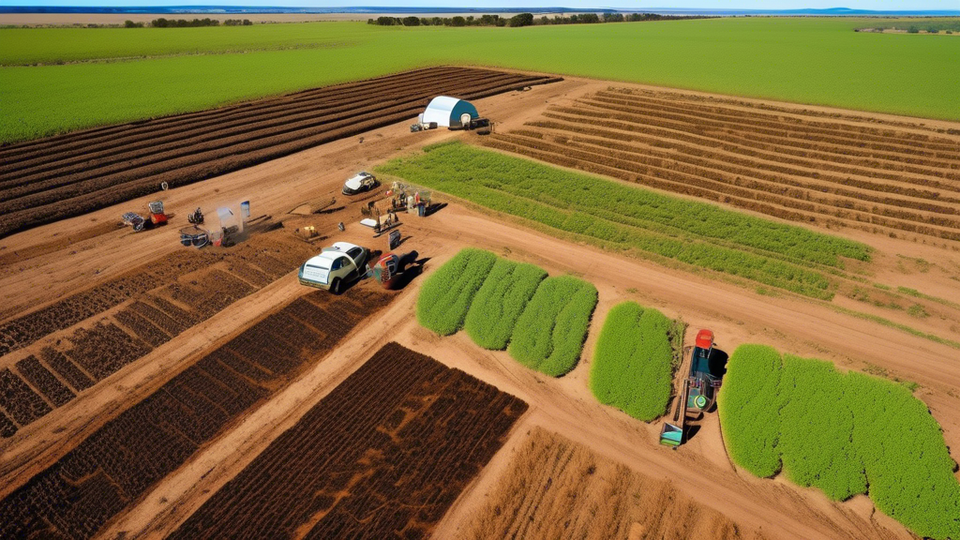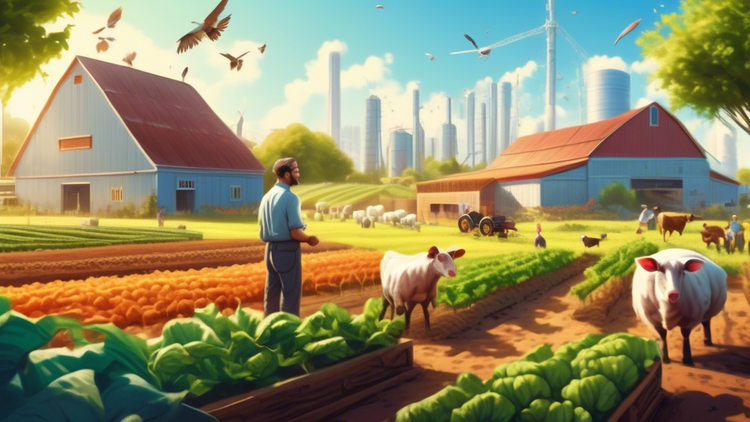Badgingarra Farmer Calls AgZero2030 Study a 'Starting Point' for Enhancing Organic Carbon Storage in WA Soil

Exploring the Potential of Organic Carbon Storage in WA Soils
The recent focus on organic carbon storage in Western Australia's agricultural soils has received a significant boost from local efforts, particularly highlighting the work done under the AgZero2030 initiative. A Badgingarra farmer has referred to this program as a 'starting point' for important changes in regional agricultural practices, aiming at enhancing environmental sustainability and climate resilience.
What is AgZero2030?
AgZero2030 is an ambitious plan aimed at transforming Western Australia’s agricultural sector into a carbon-neutral powerhouse by the year 2030. It encompasses various strategies designed to reduce greenhouse gas emissions, with a major focus on innovative soil management techniques aimed at increasing organic carbon storage. By boosting the amount of carbon held in soil, the initiative hopes to improve soil health, increase agricultural productivity, and contribute significantly to climate change mitigation.
Importance of Organic Carbon in Soil
Organic carbon refers to carbon compounds that are stored in soil organic matter, influenced by decomposed plant and animal materials. Enhancing organic carbon storage in agricultural soils is considered crucial for several reasons:
- Improved Soil Health: Rich organic carbon soils encourage better water retention, aiding in crop resilience against drought and reducing soil erosion.
- Enhanced Productivity: Soils high in organic matter are typically more fertile, supporting robust plant growth and higher agricultural yields.
- Climate Change Mitigation: By storing more carbon in the ground, farming practices help reduce the amount of carbon dioxide in the atmosphere, directly combating climate change.
The Badgingarra Perspective
The farmer from Badgingarra, leading by example in implementing these strategies, shares their experience and insights into the practical application of the AgZero2030 study’s principles. They stress that while the initiative has laid strong foundations, there are manifold challenges that need addressing to realize its full potential, including:
- Technological adaptation to facilitate precise soil and crop management.
- Economic incentives for farmers to shift towards more carbon-conscious practices without jeopardizing their livelihoods.
- Continual research and information distribution to ensure the scalability of successful methods across different farming contexts in Western Australia.
Key Takeaways for WA Farmers
Farmers across Western Australia can draw multiple benefits from integrating the principles of the AgZero2030 initiative into their practices:
- Investment in organic carbon storage can lead to sustainability and economic benefits both in the short and long term.
- Adopting innovative farming practices not only contributes to climate change mitigation but also positions WA as a leader in sustainable agriculture on a global stage.
- Collaborative efforts among government agencies, research institutions, and the farming community are essential for overcoming challenges and refining these practices.
Furthermore, the AgZero2030 initiative serves as a blueprint for similar efforts worldwide, demonstrating how targeted, informed agricultural practices can contribute significantly to environmental and economic goals.
Here's a thought to consider
The example set by the Badgingarra farmer and the broader AgZero2030 agenda underlines the transformative potential of agricultural practices in Western Australia. By focusing on enhancing organic carbon storage, the region not only addresses immediate ecological and climate concerns but also ensures a sustainable future for its agricultural sector. It’s clear that while there is still much to be done to achieve these ambitions fully, the groundwork laid by such initiatives offers a promising path forward.
Looking for updates? Sign up to our newsletter for weekly snippets.





